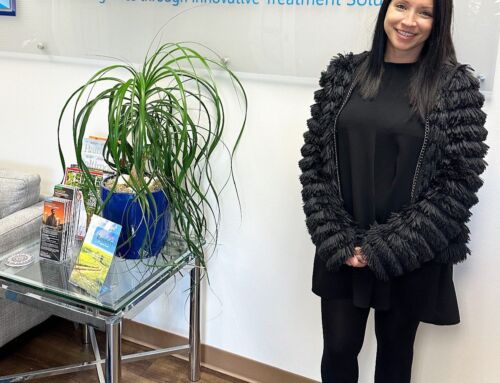Over the last 20 years, society as a whole has moved towards a system that supports parents enabling their adult children. Overwhelming college loans, lack of employment opportunities and other societal issues have created a culture where parents are taking care of their children longer and longer, further developing a dependent relationship. As an example, the average age a child left their parent’s home 30 or 40 years ago was much younger than today. Currently amongst millennials 18-34 years of age, 35% of males and 29% of females still live at home with their parents.
Taking a look at the addiction pandemic that is ravaging households throughout our country, the current culture of taking care of adult children that exacerbates enabling and dependent behaviors can be life-threatening. Addiction is a disease that thrives in comfortability and the stigma surrounding addiction (for both the person with the substance use disorder and their families) is such that what a person’s outside circumstances look like can drastically alter the internal ability to determine if substances are negatively impacting their life and if they are willing to get help. Having a roof over their head, a bed to sleep in, a stocked kitchen of food from mom and dad, spending money from parents or disposable income due to lack of bills can become barriers to accepting the need for help. Further enabling comes in the form of parents that pay bills for their adult children, take on their children’s responsibilities, rescuing their children from consequences, taking on their adult children’s emotional burdens and other similar behaviors that interferes with their child’s growth and ability to take personal responsibility.
These types of enabling and dependent behaviors can drastically impact someone’s ability to find recovery from addiction. If mom and dad are supporting their adult child with a substance use disorder in an unhealthy way, chances are the addicted adult child will have a much more difficult time finding the willingness to take the steps to find recovery. After all, the process of treatment and recovery is often not comfortable in the beginning. If mom and dad are taking care of their addicted adult child financially, logistically and emotionally, what external or internal issues will be great enough for that adult child to take the necessary steps to accept help?
It is vitally important that we also understand the difference between enabling and supporting or even more so enabling and empowering. Enabling is doing for others what they CAN do for themselves. Empowering is encouraging and guiding others so they have the power over their own decisions. Enabling depowers the adult child suffering from addiction. It is a dependent relationship between parents and their adult child. It is detrimental to the recovery process. Empowering allows the parents to support their adult child in a healthy way and allow them to learn, grow, stumble, pick themselves back up, feel consequences, learn from mistakes and ultimately act as an adult.
Enabling includes things such as fixing problems, protecting adult children from consequences, carrying and taking on feelings, attempting to control situations, rescuing, dependence and being a caretaker for the adult child. Empowering includes things like showing empathy, listening without reacting, encouraging, supporting, sharing feelings, confronting unacceptable behaviors and attitudes, guiding, supporting and caregiving.
It is important to note that many parents feel enabling behaviors fall under what it means to be a parent. However, what often happens is a parent’s own anxiety or fear dictates behaviors that are ultimately harmful to a child’s growth. It is not the job of a parent to shield children from pain, worry or fear. If a parent attempts to do so throughout a child’s life, that child will never know they have the capacity and ability to get through difficult situations. If a parent rescues a child every time the child is in trouble or facing consequences, it will begin an unhealthy pattern in which the child expects to be rescued and turns to the parent any time life becomes difficult or scary, making things much worse for the child in the long run. It is not healthy for an adult child to expect mom and dad to rescue them from consequences, difficulty or hardship. It is healthy for mom and dad to support their adult child through such situations, offering advice or experience, in order for the adult child to go through life knowing they have the ability to deal with such things when occurrences arise.
An adult child with an addiction that is dependent on mom and dad will have a very difficult time finding recovery. This is why families finding support, stopping enabling behaviors and getting on their own recovery path is vitally important. When a family stops negative behaviors and finds recovery themselves, the chances that their adult child will find recovery immediately or eventually rises exponentially. Finding family support in order to then establish boundaries and stop enabling behaviors is extremely important. This can happen through independent support groups, 12 Step fellowships like Al-Anon and Nar-Anon, through a therapist or family recovery specialist or with help through an addiction treatment center.
It is also important to note the stigma that often surrounds the idea of “stop enabling your addict” in treatment and recovery circles. Many parents and people hear “stop enabling” and automatically go towards the idea of “tough love”, “cutting off contact” with the suffering adult child or “kicking them out of the house.” This is not necessarily the case. Enabling will absolutely harm and potentially kill an addict, however stopping enabling does not necessarily mean ending contact or cutting off emotional support. Enabling can be stopped, support can be given in a healthy way and empowering can take place all with love. However, as mentioned before, this can be a painful or uncomfortable process that requires ongoing support for mom and dad and the extended family.
So what is the end result? It is well-known that enabling behaviors are detrimental to someone’s personal recovery from addiction. So how can changing a family system’s behavior from enabling to empowering be beneficial to the addicted adult child? First, the adult child repeatedly experiences firm boundaries set by the family and extended family support system and the dissolution of rescue fantasies take form. Second, the family begins to experience their own strengths and weaknesses rather than those of their loved one. The family becomes oriented to their own family system and internal regulators. While this can be painful, it will often ultimately reduce the anxiety the parents feel. Third, the family is now able to build a stable and functioning self-identity within the family system, thereby enhancing feelings of positive regard, self-worth and genuine acceptance over the recovery process. Finally, the entire family system is able to life each other up on their own recovery process and support each other throughout life without sacrificing their own emotional stability and sanity.
Parents of an addicted child need to understand that enabling behaviors will only allow for addiction to continue, but that it is possible to stop such negative behaviors with love and support. In the long run, stopping such behaviors allow an addicted adult child to finally stand on their own two feet, learn that they do have the ability to live life as an adult, grow into the person they themselves ultimately want to be and to find a life of recovery where anything is possible.
If you or someone you know is in need of help because of drug and/or alcohol abuse or addiction, please give us a call. Maryland Addiction Recovery Center offers the most comprehensive dual diagnosis addiction treatment in the Mid-Atlantic area. If we aren’t the best fit for you or your loved one, we will take the necessary time to work with you to find a treatment center or provider that better fits your needs. Please give us a call at (888) 491-8447 or email our team at info@marylandaddictionrecovery.com. For more information on all of our drug addiction and alcohol addiction services and recovery resources, please visit our web site at www.marylandaddictionrecovery.com.
Table of Contents





